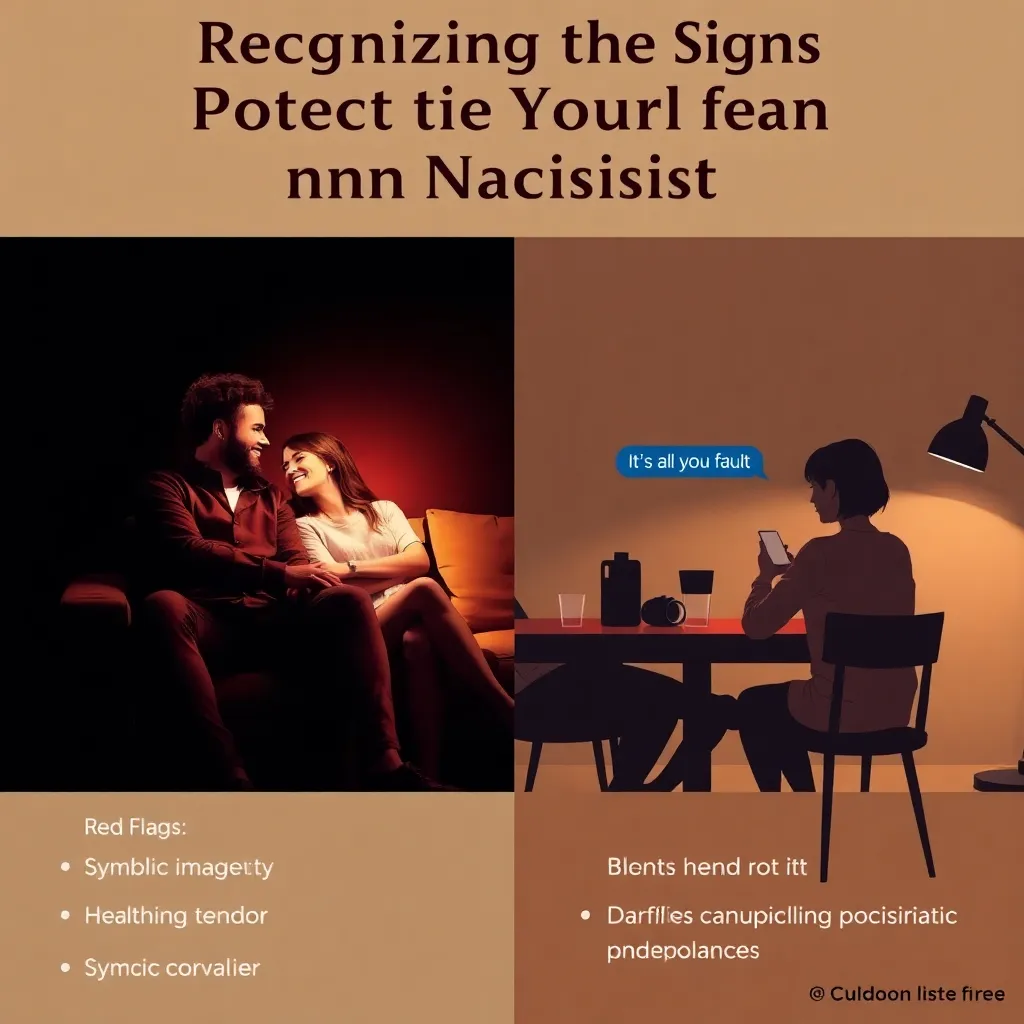Navigating relationships can be challenging, especially when you find yourself entangled with a narcissist. These encounters often leave you feeling drained, questioning your self-worth, and wondering if you’re the one to blame for the chaos in your life. It’s crucial to recognize the signs and take protective measures, as the impact of a narcissistic relationship can be profound and far-reaching. Understanding how to safeguard your own emotional well-being becomes an essential skill, one that empowers you to regain control and peace.
In this article, we’ll delve into the characteristics of narcissistic behavior and why it’s vital to distance yourself from such toxic influences. You’ll learn practical strategies to identify and manage interactions with narcissists, ensuring your emotional safety remains intact. Our goal is to provide you with the tools and insights needed to foster healthier, more fulfilling relationships. By the end, you’ll have a clearer understanding of how to protect your heart and mind from those who seek to manipulate and control.
1. Identifying Narcissistic Behaviors

Recognizing narcissistic behaviors in a relationship is crucial for your emotional well-being. It often starts with a partner who displays an inflated sense of self-importance and a constant need for admiration.
You might notice that their conversations are often dominated by their own achievements and experiences. In a real-world scenario, this could manifest as your partner dismissing your accomplishments while endlessly talking about their own.
Moreover, narcissists tend to lack empathy, making it challenging to form deep emotional connections. This can leave you feeling unheard and unsupported in moments when you need compassion the most.
Experts suggest watching out for partners who are excessively manipulative or controlling. These behaviors often manifest as them trying to dictate your choices or isolate you from friends and family.
Understanding these signs early on can help you make informed decisions about your relationship. Protecting yourself involves not only recognizing these behaviors but also setting healthy boundaries to safeguard your emotional health.
2. Emotional Impact of Narcissism

Living with or being close to a narcissist often leaves a profound emotional impact. You might find yourself questioning your own worth as their manipulative behaviors subtly erode your self-esteem.
Consider the example of a partner who constantly demands admiration yet offers none in return. This one-sided dynamic can lead to feelings of inadequacy and confusion, making it difficult to maintain a sense of balance and happiness in the relationship.
Experts suggest that the overwhelming need for control and validation from a narcissist can create a cycle of emotional dependency. Breaking free from this cycle requires a conscious effort to recognize and validate your own emotions without relying on their approval.
In an effort to maintain their facade, narcissists may employ gaslighting techniques, leaving you doubting your own reality. It’s crucial to trust your instincts and seek support from trusted friends or a therapist to rebuild your emotional resilience.
Ultimately, protecting yourself from the emotional impact of narcissism involves setting clear boundaries and prioritizing your mental well-being. By understanding the dynamics at play, you empower yourself to make healthier choices that foster personal growth and emotional stability.
3. Setting Boundaries for Protection

In dealing with a narcissist, it’s crucial to establish clear and firm boundaries to protect your emotional well-being. These boundaries act as a safeguard against manipulative behaviors that can undermine your self-esteem and mental health.
Imagine a scenario where a friend continually oversteps your comfort zone, demanding your attention at all hours. In such cases, setting a specific time for communication allows you to maintain your personal space while still being supportive.
Experts suggest that being consistent with your boundaries is key. Dr. Jane Smith, a renowned psychologist, advises that “boundaries are most effective when they are clear, consistent, and communicated with compassion.”
Remember, the goal of setting boundaries is not to punish, but to protect. By being assertive yet kind, you foster a healthier dynamic that empowers you without alienating others.
Ultimately, boundaries are a form of self-care that affirm your value and worth. They help you nurture a sense of security and autonomy, enabling you to engage in relationships from a place of strength rather than fear.
4. Strategies for Self-Preservation

Once you’ve established boundaries, it’s vital to develop strategies for self-preservation when dealing with narcissists. Imagine a scenario where a friend or partner frequently dismisses your feelings; this can erode your sense of self-worth over time.
One effective approach is to limit your engagement with the narcissist, especially during their manipulative episodes. For instance, if they begin to criticize or belittle you, calmly excuse yourself from the conversation until both sides can engage more constructively.
Incorporating self-care practices into your routine can also fortify your emotional resilience. Whether it’s through mindfulness, exercise, or creative outlets, nurturing your well-being can enhance your ability to withstand toxic interactions.
Experts often recommend seeking external support from friends, family, or professionals. A therapist, for example, can provide you with tools to navigate the relationship dynamics and maintain your mental health.
Ultimately, your goal is to maintain your emotional independence and protect your well-being in the face of narcissistic behavior. By prioritizing your mental health and setting clear limits, you empower yourself to thrive despite challenging relationships.
5. Healing from Narcissistic Encounters

Healing from an encounter with a narcissist can be a transformational journey towards self-discovery and empowerment. It’s crucial to recognize that these experiences, while painful, can serve as a catalyst for profound personal growth and renewed self-awareness.
Many individuals find solace in reconnecting with their personal passions and interests, which may have been overshadowed during the relationship. Whether it’s rediscovering a love for painting or reigniting an interest in hiking, engaging in activities that bring joy can aid in the healing process.
Experts emphasize the importance of surrounding yourself with a supportive network of friends and family who can offer perspective and encouragement. Engaging in open conversations with those who genuinely care can help rebuild trust and provide emotional validation.
It’s also beneficial to set clear boundaries to protect your mental and emotional well-being in future interactions. By developing strong boundaries, you can safeguard yourself against potential emotional manipulation and reclaim your sense of autonomy.
Ultimately, the process of healing is unique to each individual and requires patience and self-compassion. Embrace this journey as an opportunity to foster resilience and rediscover your authentic self, laying a solid foundation for healthier relationships in the future.
Conclusion: Creating Beautiful Outdoor Spaces
In navigating the complex terrain of relationships, understanding the dynamics with narcissists is crucial. We’ve explored five key concepts: recognizing narcissistic traits, setting boundaries, prioritizing self-care, fostering supportive networks, and seeking professional guidance. These insights equip you to protect your emotional well-being and cultivate healthier connections.
Take a moment today to reflect on your current relationships—identify any signs of narcissism and consider setting firm boundaries to safeguard your mental space. Remember, you are not alone; reach out to friends or support groups who can provide perspective and strength.
For future reference, bookmark this article. It will serve as a valuable guide whenever you encounter challenging dynamics in your relationships. By doing so, you are investing in your emotional health and relationship success.
Looking forward, by empowering yourself with knowledge and taking decisive action, you lay the groundwork for fulfilling, balanced relationships. Embrace this journey of growth and transformation, knowing that every step you take brings you closer to the relationship harmony you deserve. Save this article as your trusty companion on this path, and watch as your relational world blossoms with positivity and resilience.
